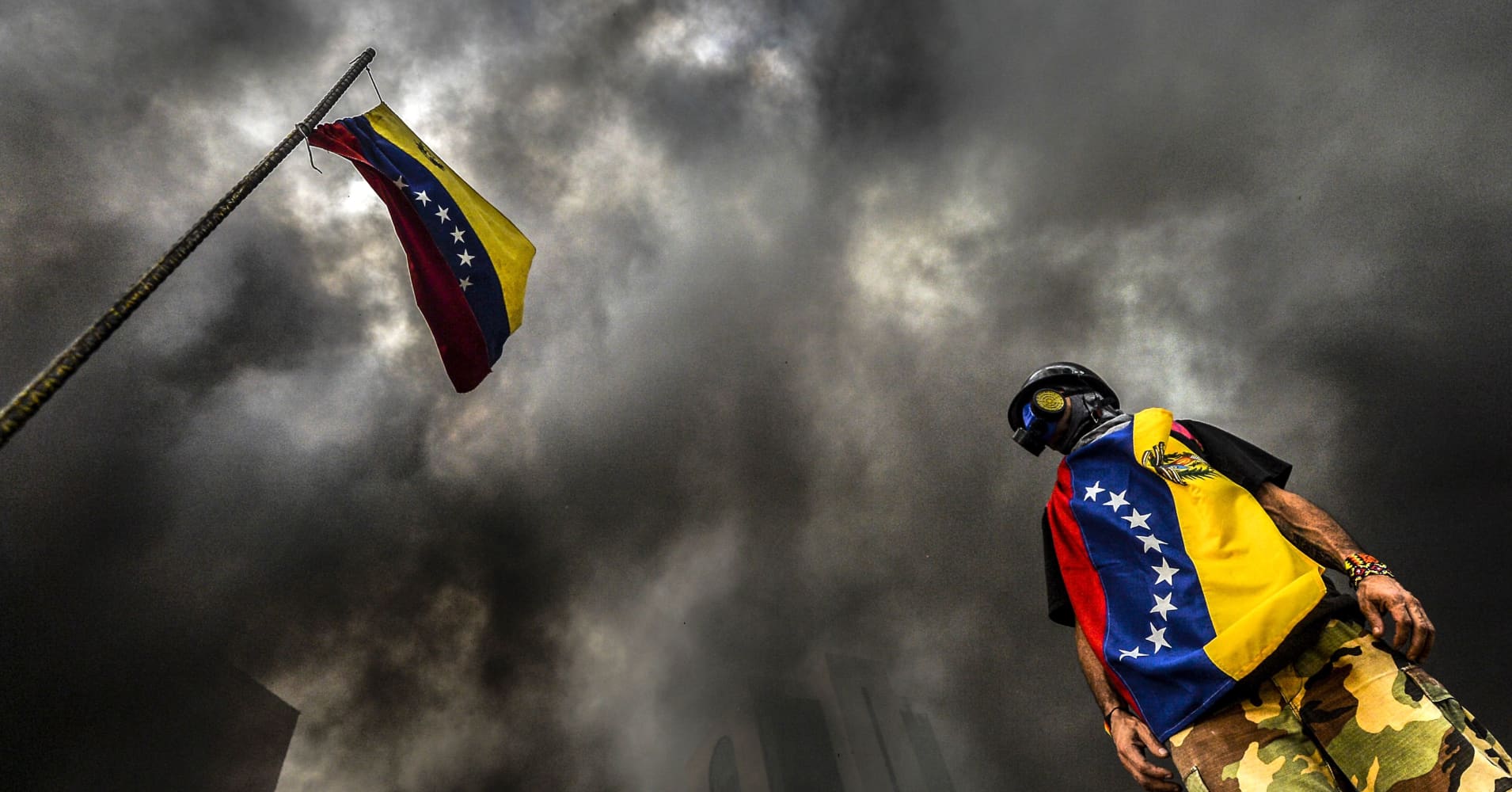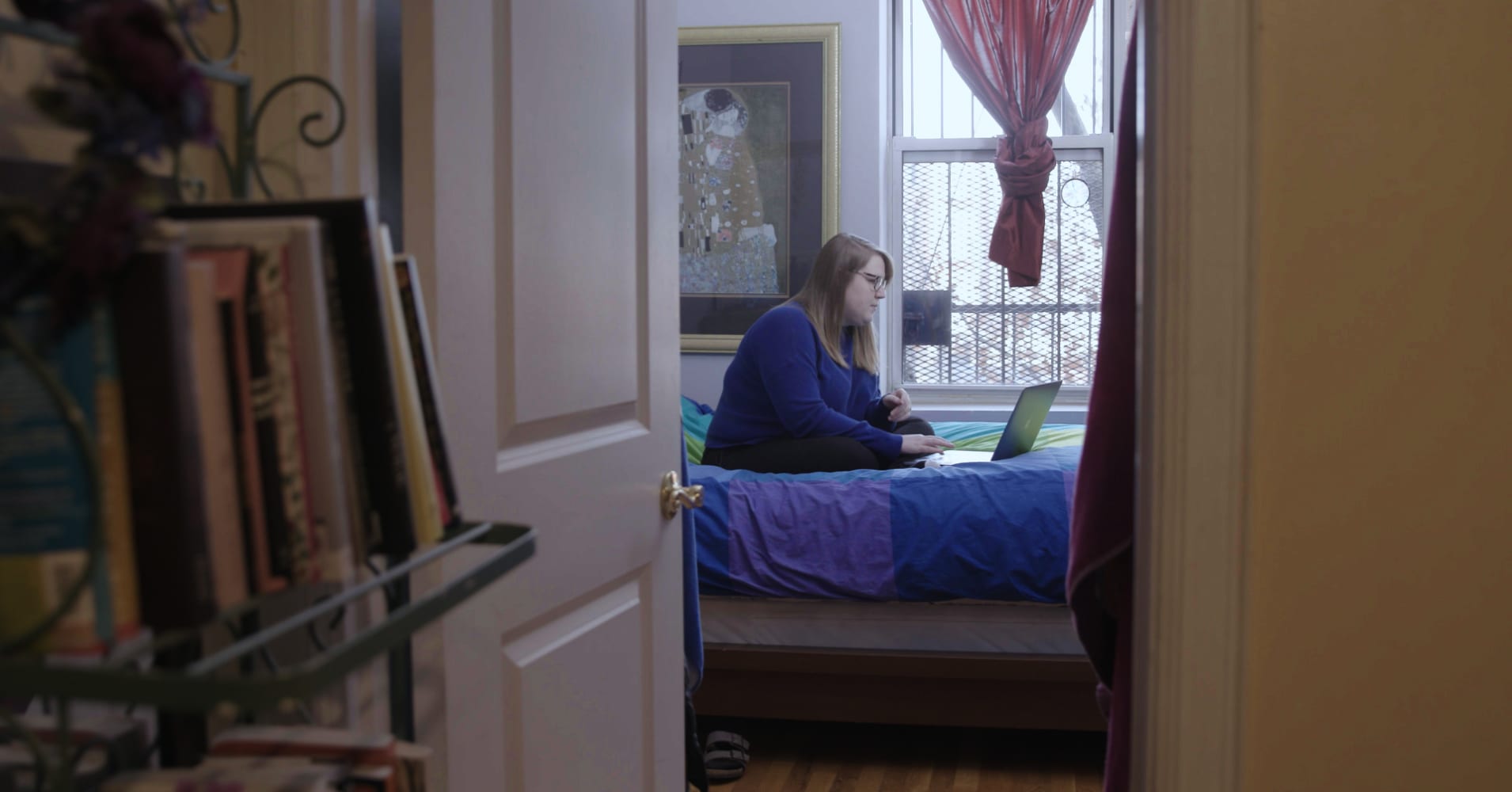A new era of great power competition took shape in Venezuela this past week.
As the first battle of this epoch, the contest for the future of Venezuela will have outsized consequences on what forces and values – democratic or autocratic — will determine not only the country’s future but also influence the regional and global future.
As the country with the world’s largest proven oil reserves and one of its greatest humanitarian disasters, Venezuela is a place whose destiny in any case would have had outsized consequences for Latin America and global energy markets. Given the involvement of the U.S. and its democratic allies on the one side and China, Russia and Cuba on the other, the stakes are even higher geopolitically.
President Trump’s recognition of interim President Juan Guaido on January 23, with the aim of forcing out Venezuelan dictator Nicolas Maduro, elevated the Venezuelan crisis to its most crucial test of his presidency and of the U.S. ability to shape affairs in its own hemisphere. It also marks an opening salvo of the Trump administration’s unfolding strategy to work with regional partners in a more concerted way.
The former head of the Venezuelan National Assembly, Julio Borges, a leading player in the interim government, put it eloquently in Washington this week at the Atlantic Council. “The Berlin Wall is falling in Latin America,” he said. “What happened in Europe 30 years ago is happening now in the region.”
It’s a useful if imperfect metaphor. Just as then in Germany, the outcome is uncertain, and the impact will be generational on democracy and freedom. The chances of success, however, depend on an even more complex interaction of local, regional and global players.
Locally, Guaido thus far has succeeded where Maduro opponents previously failed in unifying the opposition, rallying widespread public and international support, and laying out a vision for the future that would bring free elections and provide amnesty for security and armed forces who are not found guilty of crimes against humanity.
Regionally, the new Brazilian and Colombia leaders Jair Bolsonaro and Iván Duque, respectively, provide a significant boost to Venezuela’s chances at democratic change as part of the so-called “Lima Group,” a coalition of 14 Latin American countries plus Canada that is supporting democratic change in Venezuela. Just last month, the Lima Group issued a stinging condemnation of the Maduro regime, urging him to provisionally transfer executive power to the National Assembly and further restricting contacts with the Maduro regime.
Globally, the picture is less certain and may be most decisive.
The United States’ emerging strategy for Latin America was unveiled last November by National Security Advisor John Bolton in his “troika of tyranny” speech – putting Venezuela, Nicaragua and Cuba in the crosshairs.
“The United States looks forward to watching each corner of the triangle fall: in Havana, in Caracas, in Managua,” Bolton said, though most at the time didn’t predict the pace of action. On the same day, the U.S. introduced new sanctions against Venezuela and Cuba, including on Venezuela’s gold sector and entities of the Cuban military and intelligence services.
This week, the U.S. unveiled its most punitive economic actions yet against Venezuela, sanctioning its state-owned oil giant PdVSA, which remains the main source of income for the Maduro regime. It was the harshest measure yet against the Maduro regime and will immediately block $7 billion in assets and deprive Caracas of $11 billion in revenues in 2019, according to Bolton.
What Washington is up against are three authoritarian countries who have bet to one extent or the other on the current Venezuelan leadership: Cuba, Russia and China. The current showdown is a test of just how far each of these actors will go to support its Venezuelan client – and how strategic the United States, Venezuela’s interim government and other Western democracies can be in navigating these shoals.
The first indications are that a determined United States has a fair chance of helping to bring about a lasting change in Venezuela.
Over years, Havana received subsidized oil from Caracas and Cubans have assumed sensitive posts in Venezuela’s government. The daily intelligence briefing Maduro, himself educated in Havana, receives isn’t prepared by Venezuelans but by Cuban intelligence operatives. Yet as deeply entrenched as Cuba remains, Maduro’s departure would rapidly undermine its position.
Russia and China both seem to be hedging their bets, disappointed themselves at Maduro’s leadership and hoping to preserve their economic and political influence in the country in any case. Those include considerable Russia holdings in the Venezuelan energy market – and some $50 billion that China has extended in loans to Venezuela over the past dozen years, with some $20 billion still owed.
Moscow is out in front in insisting that Maduro remains Venezuela’s legitimate leader, and that the United States is essentially supporting a parliamentary coup. At the same time, however, Kremlin spokesman Dmitry Peskov said this week that the Kremlin wasn’t engaged in discussions to extend major financial or military assistance to the Maduro regime.
Russia in any case would lack logistical capacity to provide decisive help at a time when its larger and more immediately priorities are in Ukraine, ahead of elections in March, and Syria, with the impeding U.S. withdrawal. Putin also faces a stagnating economy and falling popularity at home.
In a move apparently designed to calm Chinese and Russian concerns, Guaido has told Reuters that he sent communications to both powers. “What most suits Russia and China is the country’s stability and a change of government,” he said. “Maduro does not protect Venezuela, he doesn’t protect anyone’s investments, and he is not a good deal for those countries.”
Said Chinese Foreign Ministry spokesman Geng Shuang, “We believe that no matter how the situation develops or changes, cooperation between China and Venezuela will not be damaged.”
With stakes so high, one must hope the United States, Latin American democracies and European Union countries show determination equal to the historic challenge. The EU member states haven’t yet recognized the interim president but are expected to do so by Monday when a deadline for Maduro to call fresh elections isn’t met.
In a world where democracies have been fraying and autocracies rising, a democratic win in Venezuela would have outsized significance.
Frederick Kempe is a best-selling author, prize-winning journalist and president & CEO of the Atlantic Council, one of the United States’ most influential think tanks on global affairs. He worked at The Wall Street Journal for more than 25 years as a foreign correspondent, assistant managing editor and as the longest-serving editor of the paper’s European edition. His latest book – “Berlin 1961: Kennedy, Khrushchev, and the Most Dangerous Place on Earth” – was a New York Times best-seller and has been published in more than a dozen languages. Follow him on Twitter @FredKempe and subscribe here to Inflection Points, his look each Saturday at the past week’s top stories and trends.
For more insight from CNBC contributors, follow @CNBCopinion on Twitter.







